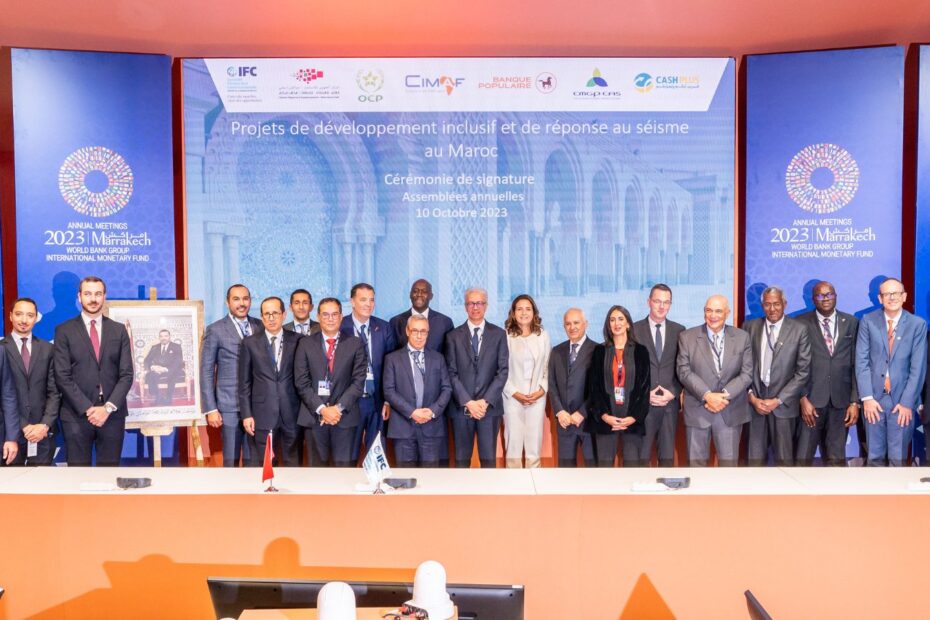International Finance Cooperation – IFC on Tuesday, October 10 announced it will commit nearly $200 million through four projects to support food security, access to finance, and sustainable agriculture and construction in Morocco and other parts of Africa.
The financing will also support Morocco’s economic recovery strategy following the country’s devastating September earthquake.
“These transformative investments underscore our commitment to mobilize private capital and foster sustainable development in Morocco, in line with the government’s strategy to promote the private sector as an engine of growth.
As we mark 60 years of partnership with Morocco, IFC is also fully committed to playing a pivotal role in the recovery and reconstruction efforts as the Kingdom rebuilds from last month’s earthquake,” said Makhtar Diop, IFC Managing Director.
The four investment projects reflect IFC’s commitment to supporting sustainable private sector activity in Africa that contributes to job creation, the delivery of essential goods and services, and shared prosperity.
Key Investment Projects
IFC will invest a €100 million loan to Office Chérifien des Phosphates (OCP), the world’s largest phosphate-based fertilizer producer, to fund its ambitious solar program and help green global food systems;
At the same time, it will also provide $36 million risk-sharing facility with Moroccan bank Banque Centrale Populaire (BCP), and Compagnie Marocaine de Goutte-à-Goutte et de Pompage (CMGP), a Moroccan company producing and distributing irrigation systems, to support sustainable agriculture in Morocco, including in the region affected by the earthquake;
The organization will also offer a €10 million equity investment, in partnership with Mediterrania Capital, in Moroccan financial services provider CASHPLUS to foster financial inclusion in the country;
Additionally, IFC will provide €45 million green loan to Moroccan cement producer Ciments de l’Afrique (CIMAF) to support low-carbon cement production in Africa.
IFC also announced that it will provide advisory services, focused on evaluating the earthquake’s impact on the local economy and designing a response to support affected businesses through the Centre Régional d’Investissement (CRI), of the Marrakech-Safi region.
This advisory support is part of a wider response program by the World Bank Group to mobilize finance and expertise to help Morocco rebuild and restore impacted communities in the aftermath of the earthquake.
About IFC
For the past six decades, IFC has partnered with Morocco to unleash the full potential of the private sector, helping position the country as a leading center of trade, investment, and innovation in Africa.
IFC has been at the forefront of private sector innovation in Morocco, with pioneering transactions such as the world’s first public-private partnership in irrigation with Morocco’s Ministry of Agriculture, and the first-ever commercial loan to a Moroccan subnational government (Region Casablanca-Settat) without a sovereign guarantee.
Since 1962, IFC has worked with more than 100 public and private sector partners in Morocco and invested and mobilized more than $3.5 billion in projects to support small businesses, manufacturers, agribusinesses, infrastructure, the financial sector, and more.
International Finance Cooperation (IFC) is a member of the World Bank Group which is the largest global development institution focused on the private sector in emerging markets.
The organization works in more than 100 countries, using its capital, expertise, and influence to create markets and opportunities in developing countries.
In fiscal year 2023, IFC committed a record $43.7 billion to private companies and financial institutions in developing countries, leveraging the power of the private sector to end extreme poverty and boost shared prosperity as economies grapple with the impacts of global compounding crises.


